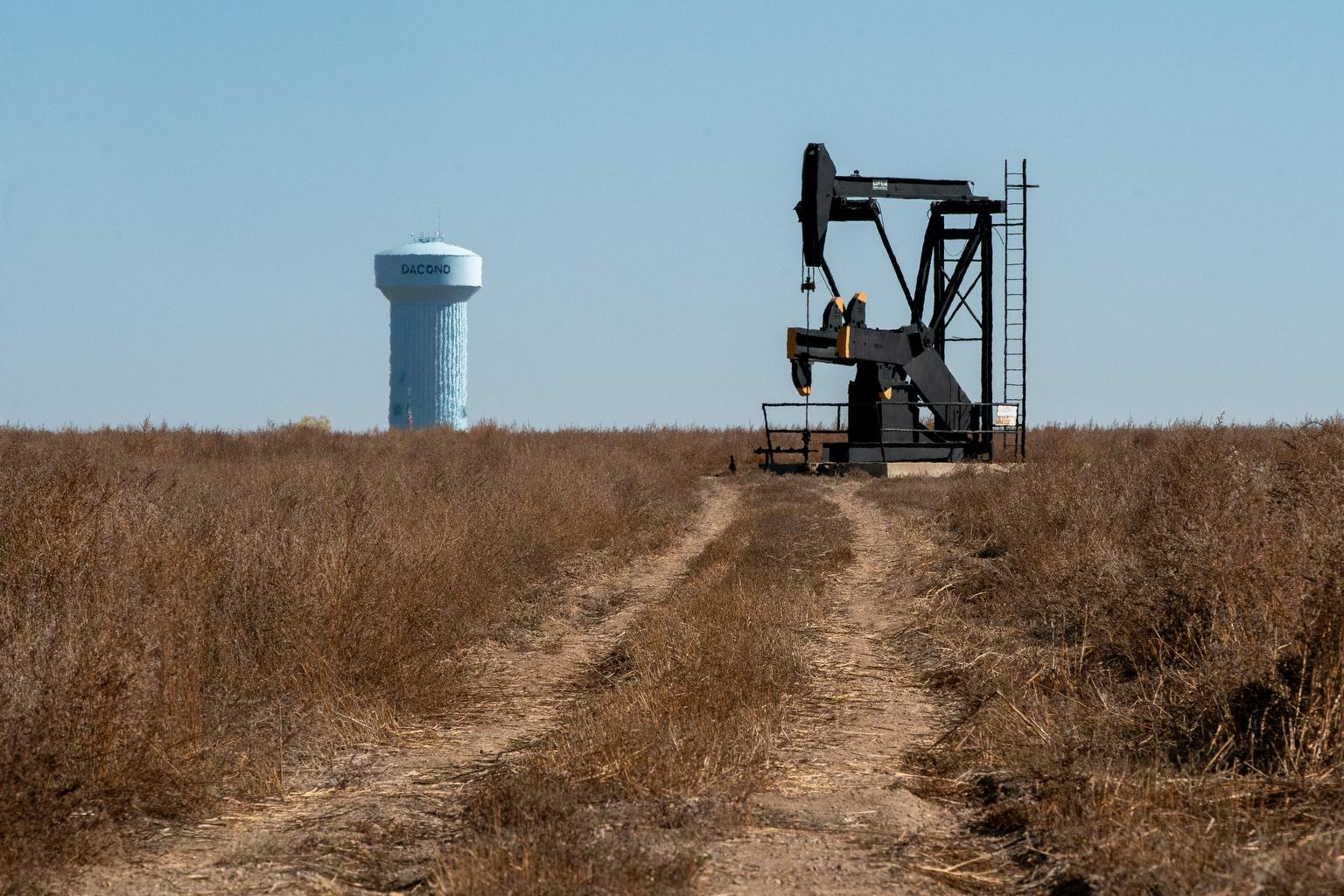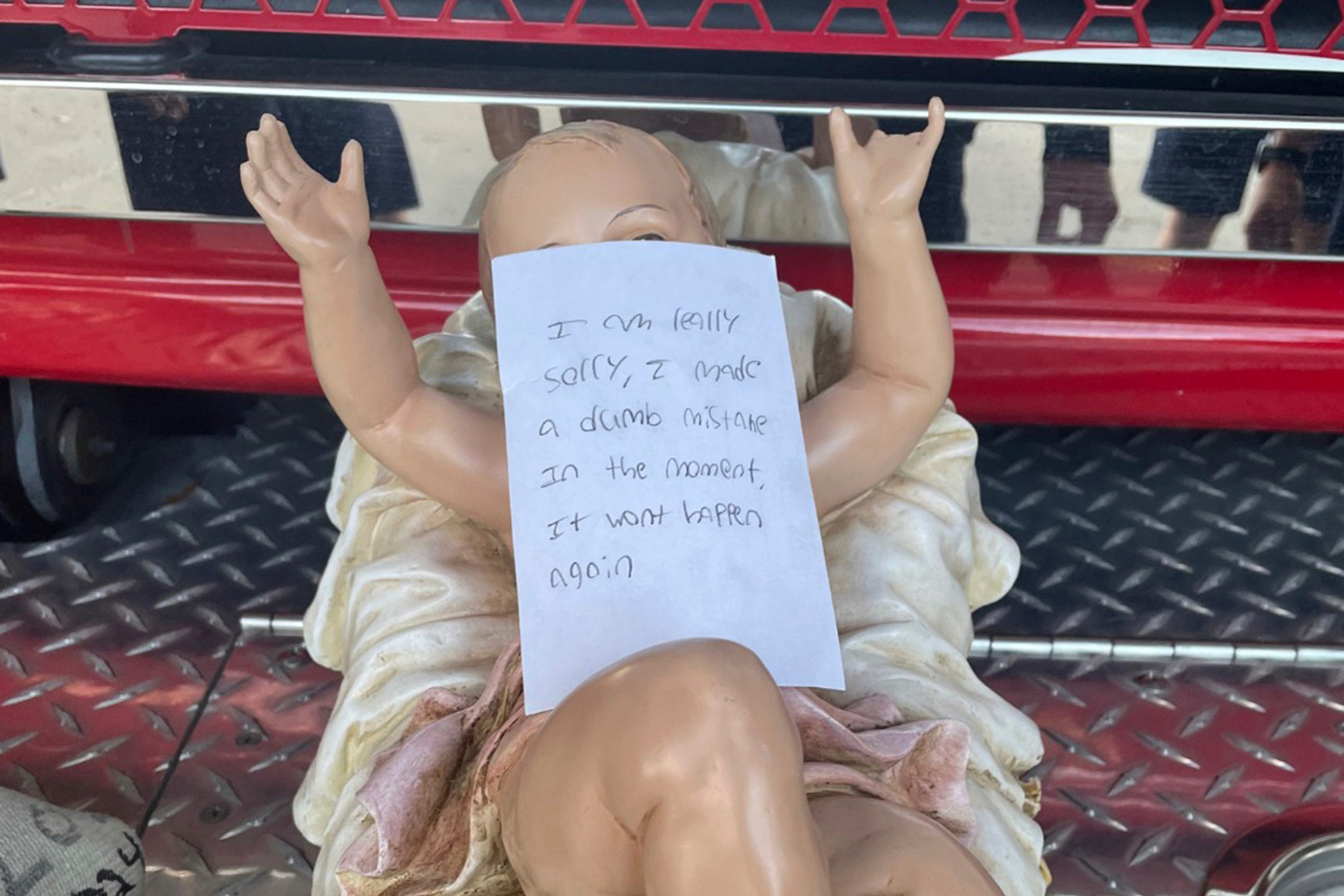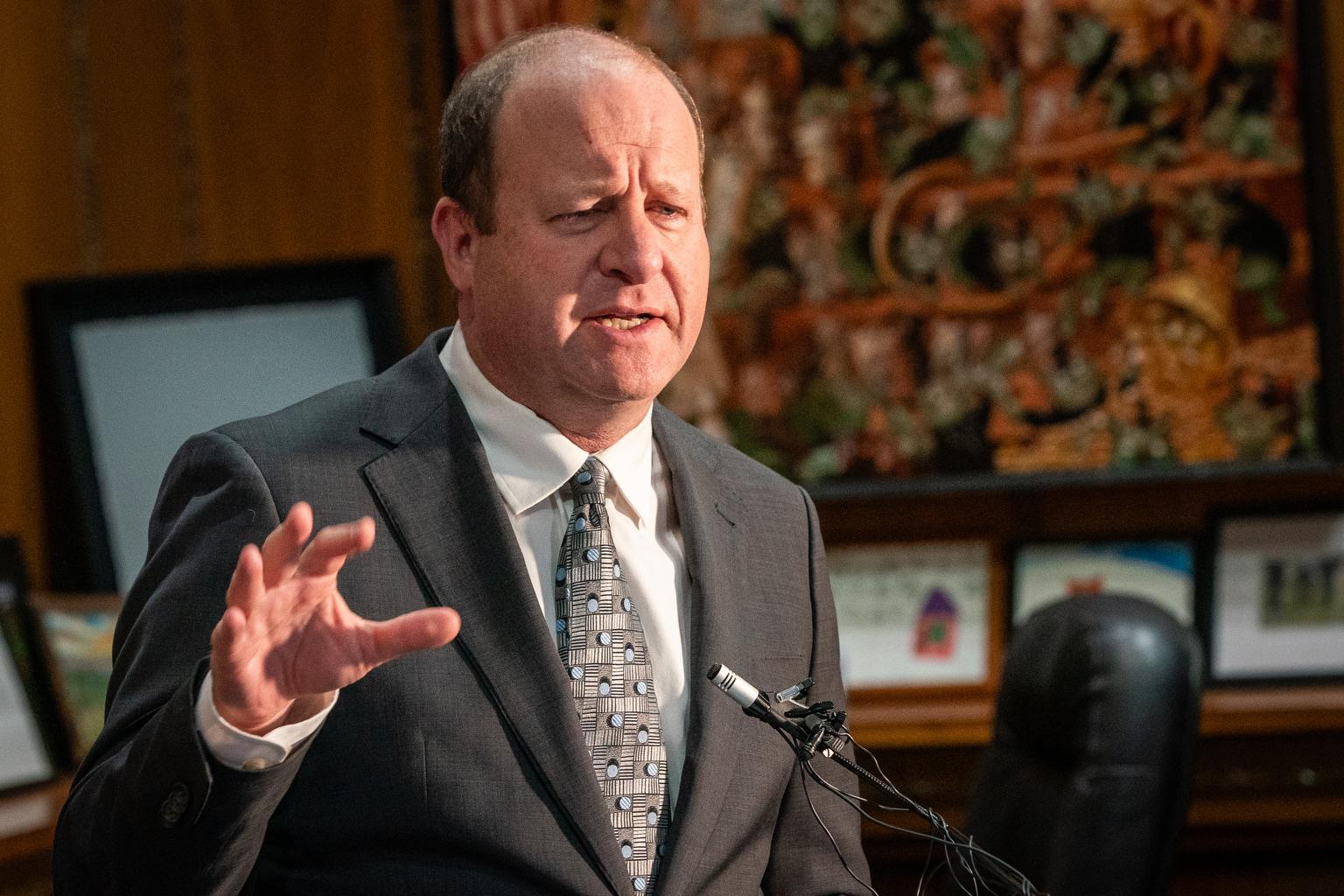
Individual oil and gas operators deserted a record number of oil and gas wells in Colorado last year, according to a new report from state regulators.
Omimex Petroleum, Inc., surrendered 339 wells in Phillips and Yuma counties, while WME Yates LLC, offloaded 212 wells in Phillips and Sedgwick counties, the report shows. Both companies are now defunct and the wells are considered “orphaned,” a classification that means they’re effectively controlled by Colorado’s Energy and Carbon Management Commission.
During the last fiscal year that ended on June 30, 2024, the state added 576 new orphaned wells to its Orphaned Well Program, which tracks and cleans up oil and gas operations.
A well site can pose an environmental and public health danger due to contaminated equipment and buried pipelines and is deemed orphaned if its owner or operator is unable to plug a well or clean up a well site. Once regulators declare a well or site orphaned, it becomes state property and regulators use a mix of state and federal dollars to plug it and restore the site.
The number of wells considered orphaned doubled last year, state data show. Colorado now has 1,725 orphaned sites with 912 oil and gas wells that still need to be properly plugged on state and private land.
Once a well site is declared orphaned, it’s often a slow process to clean it up. Last year, the state and its contractors plugged 132 orphaned wells, a record, but still far short of the backlog.
Regulators spent nearly $15 million in fiscal year 2024 to decommission old oil-field equipment, plug wells, take samples for environmental testing and clean up sites — the most in state history. It costs nearly $93,000 on average to plug a site with a well on it, according to the state.
Orphaned sites pose significant health and environmental risks. According to a Colorado State University study, unplugged orphaned wells in Colorado emit on average 70 times more methane — a powerful greenhouse gas — than the U.S. average.
“[Orphaned wells] could be leaking crude oil or even natural gas into the subsurface or into the soil and potentially releasing into the atmosphere,” said Gregory Dean, an oil and gas administrator for Adams County. Dean estimated there are hundreds of miles of old oil lines buried underground in Adams County that could potentially leak.
Two operators, hundreds of orphaned wells
Wells from Omimex Petroleum and WME Yates represented 96 percent of all the wells the state took control of last year. Regulators designated most of those wells as a low priority to plug, meaning they aren’t considered a high risk to the environment or people nearby.
Starting in September 2022, state regulators began notifying Omimex of a series of alleged environmental violations, including for safety tests that weren’t conducted or proof that it had enough cash on hand to plug its wells.
In 2022, Colorado strengthened rules for oil and gas operators by requiring companies to put up more money — known as bonds — in case the state needed to plug their wells. The new rules required operators to submit “financial assurance” plans every year, and increased how much money companies had to post before they could drill in the state.
During a January 2024 energy commission hearing, Bledsoe Cattle Company testified that improperly plugged Omimex wells damaged the ranch’s sprinklers and crops. Bledsoe estimated $17,000 in damage, according to a hearing document.
A representative for Omimex, which is based in Texas, did not show up for the hearing. Regulators banned the company from drilling in Colorado, fined it just over $23 million for violating state drilling rules and seized its wells and other property. According to regulators, Omimex never paid its fine. An attorney for Bledsoe told CPR News the cattle operation was never compensated by the company for its damage.
Omimex did not return a request for comment.
In January 2023, regulators notified WME Yates that it had not filed its financial assurance form. The Colorado company had previously assured regulators that it had $255,000 in cash to plug its wells or clean up its sites. After an investigation, regulators fined the company nearly $3,600.
But in May 2023, the company said it didn’t have the money to plug its wells, and reached an agreement with state regulators that banned it from drilling in Colorado. The state also seized the company’s wells, bonds and other property as part of the commission’s order
A representative for WME Yates, Kathleen Mikoloyck, could not be reached for comment.
In 2022, The Colorado Sun highlighted concerns about WME Yates, which at the time had 211 low or non-producing wells, but had posted only a fraction of the estimated cost required to plug them.
Program funding shifts as state confronts orphan well backlog
Much of the funding for Colorado’s orphan well program last year came out of a $25 million stream of federal dollars from the 2021 Bipartisan Infrastructure Law. While initial funding from that program will expire on Sept. 30, the state is applying for an additional $35 million in federal funds.
Since 1990, Colorado has funded part of its orphan well work from a budget line-item, which raised money from oil and gas producers. Last year, regulators used nearly $4 million of that money to fund its work, but the appropriation expired in June 2024 and is not being renewed, according to regulators.
Instead, funding will increasingly come from a fee that oil and gas companies pay for each of their wells. This so-called Orphan Wells Mitigation Enterprise Fund came online in August 2022, and regulators hope that federal dollars and the fund will raise up to $115 million over the next five years.
Even with that cash, the state has a long way to go: In 2023, regulators estimated there were 33,000 wells across Colorado that would eventually need to be plugged.









